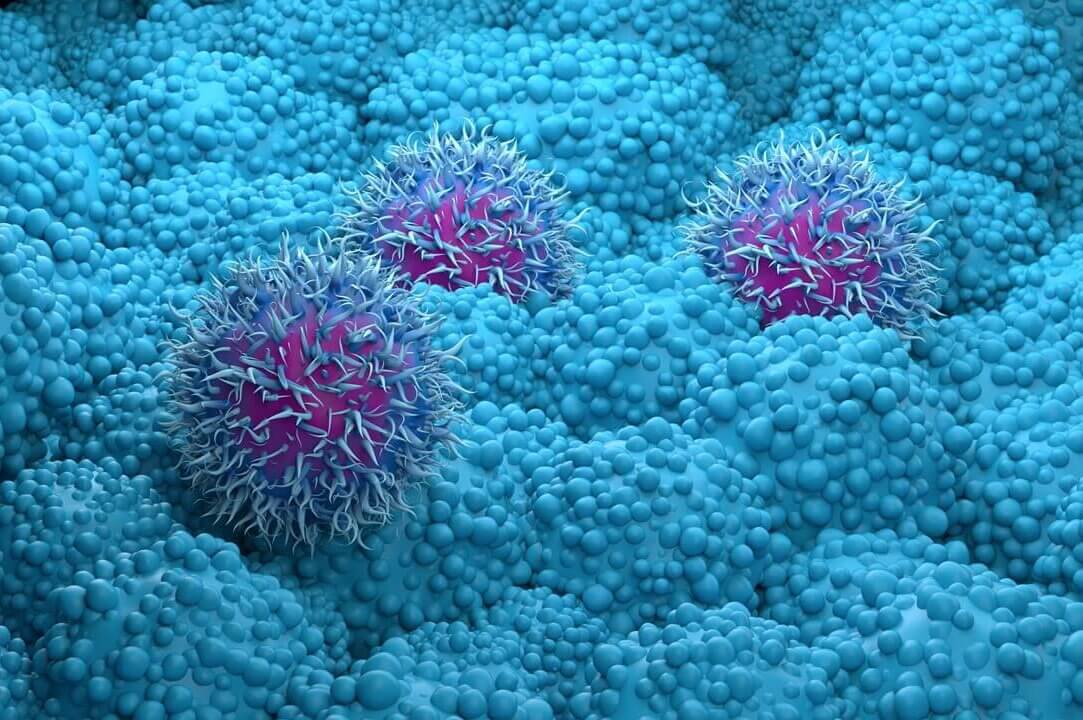OKLAHOMA CITY, Okla. — Have you ever considered how the vitamins in your food might affect your health beyond just keeping you healthy? Researchers from the University of Oklahoma College of Medicine are shedding light on how vitamin B6, found in foods like chicken, fish, and bananas, interacts with pancreatic cancer. While vitamin B6 may be good when you’re healthy, the study warns that it also helps pancreatic cancer cells replicate.
The main problem researchers aimed to tackle was how pancreatic cancer cells seem to outmaneuver the body’s immune system. Normally, our bodies use natural killer (NK) cells, a type of immune cell, to fight off diseases. However, pancreatic cancer has a trick up its sleeve; it uses up all the vitamin B6, leaving these NK cells too weak to do their job.
Dr. Kamiya Mehla and her team have been looking into this issue closely. Using mice as test subjects, they found that simply adding more vitamin B6 to their diets didn’t solve the problem. The cancer cells just grew even more with extra vitamin B6. So, they tried a new three-step approach:
- They worked on blocking the mechanism through which cancer cells used to take up vitamin B6 away from the healthy cells.
- They worked on boosting the NK cells to make them stronger.
- They increased the supply of vitamin B6 to the mice.
Interestingly enough, this strategy worked to reduce the number of cancer cells.
“That was encouraging to discover,” Mehla says in a university release, “and it is important to know because the immune system needs to be strong for other treatments, like chemotherapy, to be effective. Therapy will not work if the immune system is not able to do its part.”

The study shows that there’s potential to find new treatments for pancreatic cancer by understanding and manipulating the nutrients it needs to grow. Still, this is just the beginning. The research is promising, but it’s not yet a cure or a new treatment that doctors can use right now. It’s a step forward in understanding a very complex disease.
One of the big challenges in fighting pancreatic cancer is that it’s very hard to treat. With only about 11 percent of patients surviving more than five years after diagnosis, there’s a desperate need for new ways to tackle this disease. That’s why studies like this are so important. They offer new insights and directions for future research.
Of course, every study has its limits. Dr. Mehla’s research is still in the early stages, and there’s much more to learn before these findings can be turned into new treatments for patients. The study’s strength lies in its innovative approach to a difficult problem, but more research is needed to fully understand how these findings can be applied in real-world settings.
What does a pharmacist think?
Fighting cancer is tough, especially when it is as aggressive as pancreatic cancer. The idea proposed in this study is not only interesting but, if proven, can help practitioners and patients in the battle to beat cancer. When cancer is present, it not only weakens the immune system but also hijacks the body’s normal processes (i.e. stealing vitamin B6 from being used normally). Many techniques for fighting cancer revolve around figuring out how to starve the cancerous cells while still feeding the normal healthy cells.
As you can probably imagine, this is a very difficult thing to do. Hence why treating aggressive cancers is often a losing battle. Being able to starve the cancerous cells while feeding the healthy cells, as was demonstrated in this study, would not only help existing chemotherapy treatments work better but also give rise to newer, more efficient therapies in the future.
So, what’s the takeaway from all this? While we’re not at a point where we can change how pancreatic cancer is treated, this research highlights the importance of understanding the role of nutrients like vitamin B6 in cancer. It’s a reminder that the foods we eat and the vitamins they contain can play a role in the complex battle between our bodies and diseases like cancer. It will be interesting to see where this research goes, as its potential is great.
The study is published in the American Association for Cancer Research’s (AACR) journal, Cancer Discovery.
